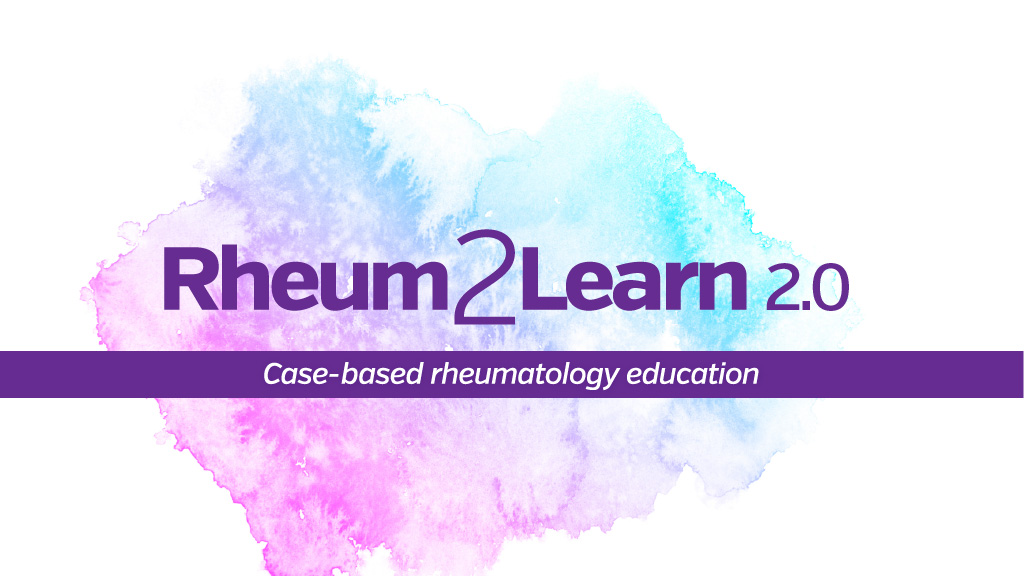
Rheum2Learn 2.0: Spondyloarthritis
Activity Information
Rheum2Learn 2.0 is case-based fundamental clinical rheumatology education for residents. Each interactive activity includes three patient cases that focus on the care and assessment of individuals with rheumatologic diseases.
In this activity, learn how to recognize symptoms and physical exam findings associated with spondyloarthritis. Explore the evaluation and management of conditions such as axial spondyloarthritis, psoriatic arthritis, and reactive arthritis, with attention to associated features like uveitis.
Rheum2Learn Series
This activity is part of a series. See all activities in the series below.
- Rheum2Learn 2.0: Crystalline Arthritis
- Rheum2Learn 2.0: Infectious Arthritis
- Rheum2Learn 2.0: Inflammatory Myopathies
- Rheum2Learn 2.0: Musculoskeletal Disorders
- Rheum2Learn 2.0: Musculoskeletal Examination
- Rheum2Learn 2.0: Osteoporosis
- Rheum2Learn 2.0: Osteoarthritis
- Rheum2Learn 2.0: Pediatric Rheumatology
- Rheum2Learn 2.0: Rheumatic Manifestations of Systemic Disease
- Rheum2Learn 2.0: Rheumatoid Arthritis
- Rheum2Learn 2.0: Spondyloarthritis
- Rheum2Learn 2.0: Sjögren’s Disease
- Rheum2Learn 2.0: Systemic Lupus Erythematosus
- Rheum2Learn 2.0: Systemic Sclerosis
- Rheum2Learn 2.0: Systemic Vasculitis
Registration is complimentary.
Target Audience
Residents in training who may provide care for patients with rheumatic diagnoses in primary care, inpatient, critical care, and other clinical contexts.
The activity may also be of interest to medical students, fellows in training, advanced practice providers, practicing physicians, and other health care professionals who seek to strengthen their clinical knowledge of rheumatic diseases.
Learning Objectives
Upon completion of this activity, participants should be able to:
- Differentiate inflammatory back pain from non-specific/mechanical back pain.
- Recognize the spectrum of axial spondyloarthritis.
- Remember imaging findings c/w axial spondyloarthritis.
- Identify the characteristic joint involvement patterns of psoriatic arthritis through careful history and physical examination.
- Recognize radiographic findings of psoriatic arthritis, including erosions with new bone formation, “pencil-in-cup” deformities, ankylosis, and sacroiliitis.
- Describe the major extra-articular and systemic manifestations of psoriatic arthritis—such as psoriasis, nail dystrophy, enthesitis, dactylitis, uveitis, and inflammatory bowel disease—and integrate these findings into a comprehensive assessment.
- Identify the typical time course for development of symptoms of reactive arthritis.
- Explain the utility of lab tests and imaging in diagnostic workup of reactive arthritis.
- Describe the initial steps in treatment of reactive arthritis, as well as when to refer to rheumatology and/or ophthalmology.
CE & MOC Information
This activity is not eligible for CME/MOC.
Acknowledgement of Commercial Support
No commercial support was provided for this activity.
Educational Activity Policies
See ACR educational activity policies, including the online enduring activity refund policy.